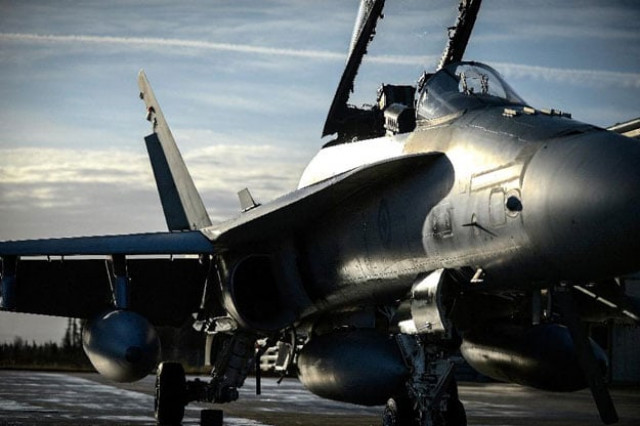Australia considers joining US-led Syria air campaign against Islamic State
Request from USA came as Australia stopped seven suspected terrorists from leaving the country to fight for IS

PHOTO: AFP
The United States has been leading a coalition of Western and Arab powers carrying out air strikes against IS fighters in Syria and Iraq since last year.
Canberra -- using six RAAF F/A18 combat jets and two support aircraft based in the United Arab Emirates -- joined the raids in Iraq but not the strikes on targets in Syria, citing legal concerns.
Read: Islamic State beheads elderly ex-antiquities chief in Syria's Palmyra
Australia has also sent about 500 soldiers, including around 170 special forces troops, to serve as advisers in Iraq.
Abbott said while there were legal issues around any involvement in Syria, Australia would "carefully consider" the Pentagon's request and reveal its decision in a few weeks.
"We have a formal request from the Americans to extend our airstrikes into Syria," the prime minister told reporters in the western city of Perth.
"(IS) is a movement of almost incalculable, unfathomable evil and it's very important that Australia play its part in the campaign to disrupt, degrade and ultimately destroy this death cult.
"While there is a little difference between the legalities of airstrikes on either side of the border, there's no difference in the morality."
The Australian military's chief of joint operations Vice Admiral David Johnston said in a media briefing on Wednesday that his country's involvement in Syrian airstrikes, if it does occur, would not be a "game-changer".
"The contribution of Australia, while always welcome, isn't a game-changer one way or the other," Johnston said.
Read: Investigators confirm Islamic State link in Safoora attack
"In part, there is a bit of a zero-sum game. We've got a number of aircraft there. Whether we're operating in Iraq or in Syria, the capacity is the same."
The request from Washington came as the Australian government said Thursday it stopped seven young suspected terrorists from leaving the country this month to fight for militant groups in the Middle East.
Australia has become increasingly concerned about the number of citizens seeking to fight overseas.
Canberra estimates that around 120 of its nationals are still fighting in Iraq and Syria, while at least 30 have been killed.
Another 160 sympathisers are believed to be supporting terrorists from home.
To combat the menace, the country has introduced new national security laws, raised its terror threat alert level to high last September, and conducted counter-terrorism raids in various cities, foiling several attacks.



















COMMENTS
Comments are moderated and generally will be posted if they are on-topic and not abusive.
For more information, please see our Comments FAQ